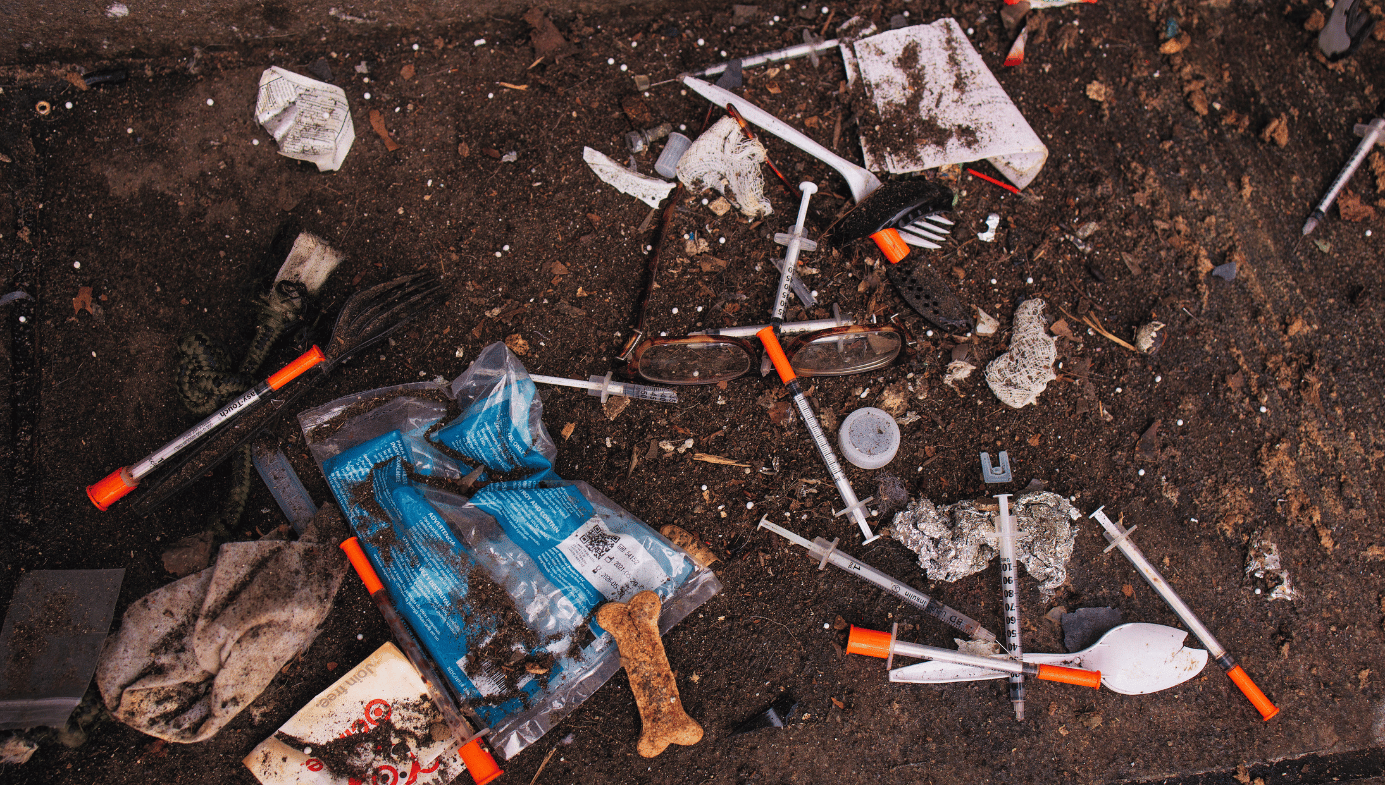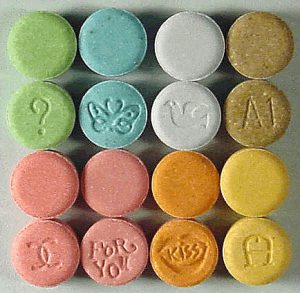Health
Against the Demonization of Drugs
Drugs are able to save lives and ruin them; enhance your mind and numb it; heal your body and destroy it.

For most of us, the word ‘drugs’ comes burdened with negative associations. Run a quick mental check: how many positive associations come to mind when you think of the term ‘drugs’? However, a ‘drug’ is simply any substance other than food that causes a physiological change when introduced into the body (inhaled, injected, smoked, consumed, absorbed, etc). As such, the term ‘drugs’ is so broad that any sweeping generalization about them is likely to be false. Drugs include a whole spectrum of substances ranging from the highly addictive, such as crack cocaine, to the life saving and pain relieving, such as anaesthetics, to the mind enhancing, such as caffeine, to the purely recreational, such as alcohol.
Yet public discourse on the subject is usually limited to the narrow mantra that “drugs are bad.” Where are the people reminding us that “drugs can be good”? There is no doubt that most anti-drug campaigns have good intentions (such as protecting people from addiction), but the simplistic picture they provide makes it difficult to make useful distinctions between dangerous, safe, and life-saving substances. Think of the people afflicted with mental health problems, for example, who might benefit enormously from antidepressant medication, but won’t due to a reflexive fear of drug use.
There is no doubt that some drugs can be dangerous and that their usage should be carefully monitored: heroin, crack cocaine, and methamphetamine are the most obvious examples. But the truth is that drugs are many things. Drugs are able to save lives and ruin them; enhance your mind and numb it; heal your body and destroy it. More important perhaps is that each substance can have different effects on different people and at different doses. In smaller doses, a cough syrup is soothing, while at higher doses it can have hallucinogenic effects. Similarly, Alcohol can be used safely as a recreational social lubricant, but when abused it can have neurotoxic effects.
The problem is that the current anti-drug movement lacks specificity or clarity. The term ‘drugs’ has become so tainted that even considering the positives of drug use has become extremely difficult.
This article aims to promote a more balanced, and scientific, view of drug use. It is our view that modern society desperately needs a more comprehensive, measured, and rational discourse about drugs. A discourse that enables people to understand drugs rather than simply fear them. This would prepare us to deal with drugs in a sensible way, better enabling us to enjoy their benefits, and mitigate their drawbacks and dangers.
The Legal Criteria Are Often Arbitrary
Legally speaking, there is of course room for some nuance. There isn’t a single country that has banned all drugs. After all, many substances are medically necessary and therefore legal. However, the methods by which we classify which substances are legal and which to criminalise are often arbitrary, historically anachronistic, and uninformed by scientific evidence.
It would be nice to believe that world governments had undertaken careful investigations and decided on the legality of substances based on their potential for harm or good; or if they ensured that further research into illegal substances is possible if they show medicinal potential. Unfortunately, this is not the case.
Sometimes potentially harmful substances are legal due to popular demand.
A historically noteworthy example of the arbitrary criminalisation of drugs was the era of prohibition in the United States, which lasted from 1920 to 1933. The dangers and alleged immorality of alcohol were the driving forces behind its prohibition in 1919, when the 18th Amendment to the United States Constitution was ratified making it illegal to buy or consume alcohol throughout the country. However, prohibition of alcohol was overturned, not only because people simply refused to abide by the law, but also because prohibition didn’t appreciably decrease alcohol consumption. As a consequence, today it’s largely left to each individual to be responsible in their consumption of alcohol, notwithstanding restrictions and regulations to ensure safety.
Sometimes safe substances are illegal due to their links to other substances

Today, the chewing of coca leaves remains a traditional part of Andean culture and is used to treat all manner of afflictions, from altitude sickness to menstrual pain. Further, they function as a stimulant and produce a buzz not dissimilar to that offered by an espresso. Chewing coca leaves helps the user to sustain hard work and doesn’t appear to have any discernible side-effects. Arguably, the world could benefit from having access to the nootropic effects of coca. However, it remains illegal in most Western countries because it can be used to manufacture cocaine.
Sometimes life-saving substances are illegal due to arbitrary moral beliefs
Historically, there have been some surprising reactions to medical advances, such as the initial resistance to general anaesthetics. In 1865, the city of Zurich actually outlawed the use of a general anaesthetic, arguing that it was important to experience and endure physical pain, since it was natural and a necessary burden for ‘original sin.’ In the same way, today many are expected to endure the pain of their mental illness, or feel ashamed of taking medication to treat it. Such medications are not illegal, but the irrational stigma attached to their use is analogous to that previously attached to anaesthetics.
Sometimes substances are illegal due to unscientific claims
Today, the legal system justifies drug prohibition by appealing to health hazards and the threat of moral corruption. Such arguments are remarkably similar to those made a century ago. Often, anti-drug campaigners offer a variation on the ‘slippery slope’ fallacy, which holds that people start by using so-called ‘soft-drugs’ and inevitably end up overdosing on heroin (these ‘soft drugs’ never seem to include alcohol, tobacco, or coffee). But, of the tiny minority of people who experiment with heroin, most do not overdose and remain capable of leading reasonably functional lives.
The data offer scant support for the slippery slope argument. According to the National Survey on Drug Use and Health, recreational drug use remains rare, even though almost half the population has consumed illicit drugs at some point in their lifetime. If anything, research shows that the most common ‘gateway drug’ is alcohol—a drug that large parts of every class in society consume.
Interestingly, most people acknowledge that tobacco and alcohol use entails health risks. But a liberal ‘live and let live’ attitude leaves it up to the individual to manage his or her behavior and limits. Unfortunately, the same logic doesn’t apply in the case of marijuana or Modafinil. Instead, anti-drug campaigners argue that because smoking marijuana or taking Modafinil entails health risks, people should be prohibited from deciding for themselves whether or not to use them.
We Are In Desperate Need of a More Scientific Framework
If you are left with the feeling that this is all a mess, you are not alone. A charitable summary of contemporary attitudes towards drug use goes something like this:
- Drug use for (physical) medical purposes is accepted.
- Drug use for (mental) medical purposes is legally accepted but often socially stigmatized.
- Drug use for recreational purposes is unacceptable and illegal — however, alcohol and tobacco are presently exempt due to their history in our culture.
- Drug-use for self-enhancement, other than coffee, (such as nootropics) remains relatively unexplored by the scientific/medical community and poorly understood by the general public.
While this picture has some logic, it’s far from a consistent or reasonable way to approach the subject.
Let’s take a charitable interpretation of our current legal framework around drugs. In the US, FDA regulations are loosely based on a cost/benefit analysis: if the perceived benefits outweigh the perceived costs, then a given drug should be legal; conversely, when perceived costs outweigh perceived benefits, it should be illegal. Were it applied consistently, this formula might provide a sensible framework for deliberation.
However, we do not follow this approach in practice. According to David Nutt, the former UK government chief drugs adviser and current professor of neuropsychopharmacology at Imperial College London, some legal substances, such as alcohol, are significantly more detrimental to the individual and to society than illegal substances, such as LSD or MDMA.
#LSD, #MDMA, and #psilocybin are being researched as potential therapeutic adjuncts to psychotherapy https://t.co/WHB5I2oRWV via @Reason
— MAPS (@MAPS) May 21, 2017
Legal inconsistencies like this are largely the product of fear and ignorance. People worry that if drugs become more widely and freely accessible, it would necessarily increase the number of drug addicts and related levels of criminality, which would in turn force governments to commit ever-increasing levels of public money to addressing these problems. However, evidence from cases of decriminalisation paints a different picture.
Portugal has decriminalized all drugs, a bold and counter-intuitive move to combat its drug problem. Fifteen years on, the results are impressive: illegal drug-use has declined, HIV infections from shared needles have fallen by 17 percent, and the number of people seeking help for drug-related issues has doubled. Furthermore, mortality rates from heroin and related substances have been cut in half. Currently, the Portuguese show a lower life-time consumption of marijuana than any other Western country. And the money once spent on enforcement of drug-laws has been redirected to fund addiction treatment. These results should serve as a model should we decide to reconsider our intuitions about drugs and drug use, and the likely consequences of a more liberal policy.
The Demonization of Drugs Can Have Negative Effects on the Positive Uses of Drugs
The social acceptability of various drugs has changed tremendously as technology, medicine, and understanding have advanced. Today there doesn’t seem to be anyone left making an argument against anaesthetics. It is therefore unclear which substances will remain socially acceptable by the end of the century. Already, many countries are reconsidering attitudes and legislation related to marijuana, for example. Moreover, researchers are looking into the therapeutic effects of MDMA for trauma patients, LSD for alcoholism, and Ketamine for depression with promising results.
MDMA/PTSD clinical trial This is not a big scientific step, says @ProfDavidNutt But it’s a huge step in acceptance https://t.co/Ir2BQU1Dyn
— Keith Scott (@drkeithscott) August 30, 2017
We’d like to share a personal account from one of the authors: When Sana told people that she had started taking SSRIs to treat her anxiety, many looked worried and suspicious. This wasn’t because she was suffering from anxiety, but rather because she was treating it with a drug that alters her mood — which was precisely the point. She has heard many misinformed arguments as to why she shouldn’t be taking drugs, even in these circumstances. Memorable examples include “artificially boosting your mood with an antidepressant doesn’t produce real happiness” and, even stranger, that “this is cheating.” The general expectation was that she should be working through her suffering ‘naturally’ without any synthetic support.
The common theme of such comments was an ignorance of, or disregard for, the physical basis of mental health problems, and an assumption that whatever the brain is producing by itself was in some sense good and helpful. The prevailing belief seems to be that our brains naturally produce the correct or appropriate responses to all situations. But mental illness means that exactly the opposite is true (which is not to say that mental illness isn’t a sensible response to trauma). The treatment of mental health problems without drug use would be nearly impossible in many cases.
The fact of the matter is that Sana’s brain wasn’t working in the way that was best and healthiest for her. The anxiety was a childhood relic that helped her survive a very abusive environment. However, as a grown woman, she now lives in a calm and stable environment but her brain hasn’t been able to fully accommodate and respond to these changes, and might never do so without treatment. Early traumatic childhood experiences can raise a body’s cortisol levels permanently, creating elevated susceptibility to stress throughout life, and dramatically increasing the chances of suffering from chronic diseases.
In contrast, she has never received comparable responses when she took drugs to treat physical diseases. It seems that taking a drug to alter one’s mental state is still perceived negatively. This is not to gainsay the hugely positive effects of therapy, social support, and a healthy lifestyle. But taking drugs out of the picture removes an important tool we have for facilitating the journey back to wellbeing.
This Attitude Is Counterproductive
In many ways, people have a status quo bias which causes us to believe that our human predispositions are the state of the art. The only exception, it seems, is when you’re physically ill. In those circumstances, it’s okay to reject the natural and seek medicinal improvement and amelioration. However, humans are anything but perfectly formed, and have the unique capacity to trascend their elementary state. In A History of Transhumanist Thought, Nick Bostrom argues that “after the publication of Darwin’s Origin of Species (1859), it became increasingly plausible to view the current version of humanity not as the endpoint of evolution but rather as an early phase.” This is gradually becoming more evident as we look at our evolving relationship with technology and medicine.

In many ways and circumstances, we routinely accept that we are not an ideal species. In political and public discourse we agree upon the need to educate people, create laws, and design systems and interventions that help us to avoid our own pitfalls and achieve our potential. It can be hard to accept, but our default state is the product of an amoral system, namely, natural selection. This imperfect process has created a diverse array of ‘survival machines’ – in our case, humans. These humans may have been particularly adept in passing on their genes and mastering the challenges of their ancestral circumstances, but our modern lives now unfold in very different environments.
Our ancestral environment was significantly more physically demanding, whereas our modern lives require us to be able to sift and organise previously unimaginable quantities of information. At the current rate, human knowledge (specifically digital unique data) is doubling roughly every 13 months. According to IBM, if this growth rate continues, our collected data will eventually double every 12 hours. To be able to navigate today’s world, the use of computers and smartphones is becoming increasingly necessary, and to be able to keep up with the current growth rate, enhancing our cognitive abilities and psychological resilience will be paramount.
Just as we are improving the environment to better suit our needs, we must begin a conversation about how we can better improve our minds to suit those needs. Of course, there will be many novel challenges and large changes as a result of these developments, and these can be hard to foresee or accept. Nonetheless, many of us have a desire to understand the world’s complexity, and to be a part of the beauty that our information age has to offer. It seems that, without enhancing our own abilities, we will fall behind the very society we are aiming to create.
Drugs can be used to enhance ourselves in a myriad of ways
Before the rise of modern medicine, child mortality was extremely common and many perished from preventable diseases. Since 1900, we have doubled the human lifespan and across the globe we live increasingly healthier lives. We came to accept the benefits of taking drugs, as we conceived of the huge advantages scientific medicine has to offer. In that sense, we are already self-enhancing with drugs, and we are already regular drug users. Our current approach in the medical professions is largely concerned with curing diseases and alleviating or preventing illness and suffering. In this light, medicine and psychology today care only about getting you back to your baseline when you fall below it. There is a lot less active research into how we can make ourselves happier, fitter, and more productive. Furthermore, research on cognitive enhancement and other forms of self-enhancement is sparse and rarely incentivised. Looking into the future and considering our past, it becomes quickly apparent that drugs will be a key component in improving our health and further prolonging healthy lifespans.
“Drugs are bad” is holding us back

Raising the bar of happiness for the average reasonably well-adjusted person doesn’t yet seem important to most institutions, which is understandable given the amount of suffering we have yet to combat. Nevertheless, maximising what we can get out of life is something that many of us strive for. We needn’t exclude helpful tools that can help us achieve our goals. Of course, the use of drugs needs to be approached with caution and knowledge, and the majority of discourse on drugs centers around precisely those aspects.
Nobody denies that drugs can be harmful. But modern science is producing a whole host of promising drugs that can improve on the default in a myriad of ways. Today, nootropics such as L-theanine or Modafinil and the scientific exploration of largely illegal substances such as marijuana and MDMA could be an important step towards self-enhancement. It’s important to acknowledge the huge benefits responsible drug use has already offered, and the huge potential it still holds. Dismissing this would mean a huge setback for the future of human well-being and happiness.
Conclusion
Attitudes towards drugs have varied dramatically across time and cultures. There are good reasons to suppose that our attitudes today will look as crazy as the abolition of anaesthetics in the 19th century does to us. It’s important that we take a rational and scientific look at our drug legislation and attitudes, and come up with public policy that is clear-eyed about the benefits and dangers. Not doing so will prevent us from finding better treatments to illnesses, prevent people from accessing treatment, and delay us from developing cognitive enhancers for dealing with an increasingly complex future.






